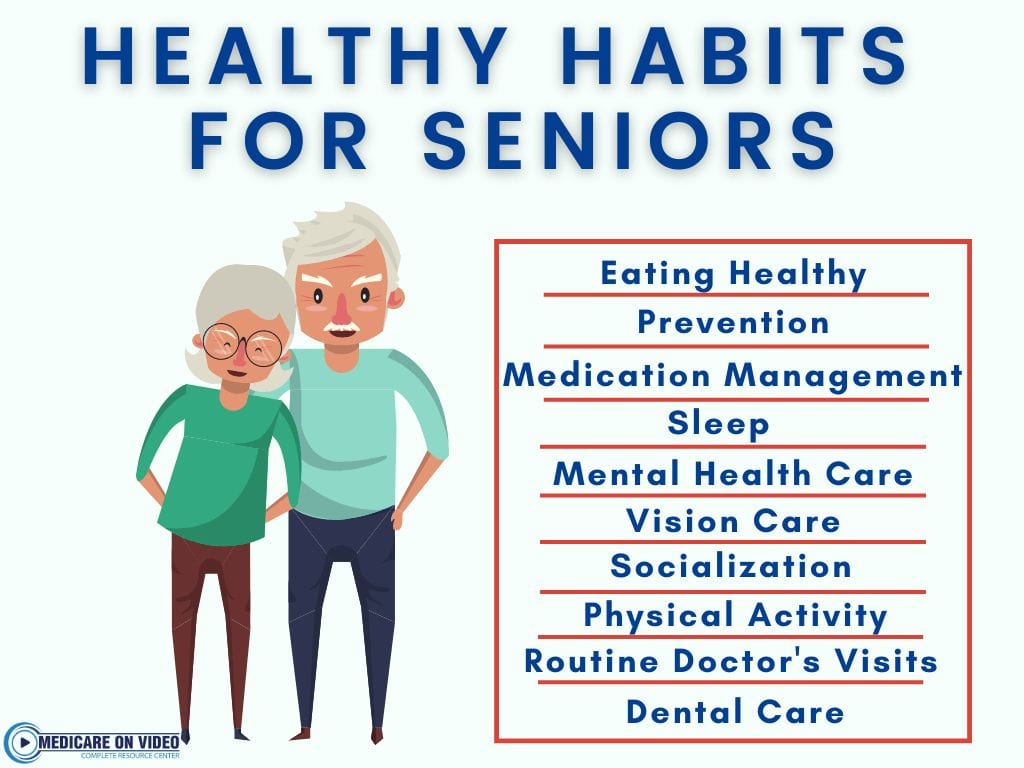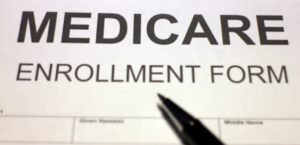When it comes to staying healthy as you get older, there are many different approaches, tips, and tricks you can easily make a part of your daily life. Your 60s are a significant decade with many life and family changes. You may be planning to retire or are beginning to settle into retired life. You will have more time to spend on yourself and your loved ones and will want to adopt or maintain your healthy habits. All of the changes that come during this time of your life can be exciting and scary. Setting yourself up for a long, happy, active retirement can be achieved by adopting some basic seniors’ healthy habits. There is no better time than now to start making these healthy habits a part of your daily life if they are not already and if they are making sure you maintain them. Here are 15 senior habits that will get you started.
- Eating healthy
As you get older, your digestive system can start to slow down, so making sure you incorporate high-fiber fruits, vegetables, and whole grains is more critical than ever. As you age, you are also more likely to experience dehydration, so make sure you are always drinking plenty of water to stay hydrated. It is also never too late to adopt healthier eating habits like incorporating more plant-based foods into your diet and reducing the amount of fatty meat, fried, and fast food in your diet. Studies have shown that no matter your age incorporating even one meatless day into your diet a week can have significant health benefits.
- An ounce of prevention
As the saying goes, an ounce of prevention is worth more than a pound of cure. As you get older, your body takes longer to recover from injury and illness. So, in addition to eating healthy and exercising, making time for your routine preventative care visits is essential. These preventative visits to your doctor consider your age, and your doctor will perform health screenings appropriate for your age. This includes screenings for cholesterol levels, colon cancer, heart problems, and more. Getting vaccinations that can help prevent influenza, pneumonia and Covid-19 are a vital part of staying healthy.
- Medication management
If you are on any medication, you should always review your medications with your physician regularly, especially if you start taking a new medication. This is especially important if you have different doctors prescribing different medications. They need to know about every medication you are taking to identify possible drug interactions, allergic reactions, and side effects, including drowsiness, loss of appetite, and more.
- Sleep
Insomnia is common among seniors, so taking care to make sure you get enough sleep is important. Prepare for bed by turn the lights down, turning off the TV and any other electronic devices at least 30 minutes before you go to bed, and make sure your bedroom is comfortable, cool, and quiet. These can all contribute to getting a good night’s sleep.
- Your mental health is as important as your physical health
Keep your mind sharp by doing crossword puzzles, reading and writing, and anything else you enjoy that will stimulate your mind. Additionally, social interaction is essential for mental health. Many seniors can become isolated as they get older and friends and family begin to pass away. Children and other family members may move or become busy with their own lives. Finding ways to stay engaged with others and the world around you plays a vital role in your mental health. It can also help ward off depression which can contribute to a whole host of other physical health issues.
- Watch for changes in your vision
If you wear glasses or don’t, you should have your eyes checked every year for changes and have your eyes screened for health issues. Having glasses with the right prescription can help reduce falls and the need to strain to read or see, which can be especially dangerous if you are driving. Eye screening can also help identify more severe health issues like cataracts, diabetic retinopathy, glaucoma, and retinal detachment. All issues you are more vulnerable to as you age.
- Socialize
As mentioned when we talked about mental health, spending time with family and friends helps seniors feel connected. This can be especially important for those with mobility issues. Staying connected socially to friends and family and even making new friends directly impacts mental health and will help you stay more upbeat and happy.
- Stay physically active
There are many benefits of staying active. It can help you maintain muscle tone and strength, bone density, and more, all of which are important to staying healthy and energetic as you age. Additionally, physical activity alleviates depression and improves energy and memory. If you are concerned about what you can do, work with your doctor to develop an appropriate and safe exercise routine. Incorporating any level of physical activity is beneficial and can include walking, light weights, stretching, and more. Check out this great website – Stronger Seniors.
- Annual Preventative Doctor Visits
Every new Medicare beneficiary is eligible for a free Welcome to Medicare Physical in the first 12 months of joining Medicare and free annual wellness visits after that. During this physical, the doctor will review your medical history and provide information about preventive services. The Welcome to Medicare Physical includes the following:
- Information on certain health screenings, flu, and pneumococcal shots, and referrals for other care, if needed.
- Height, weight, and blood pressure measurements.
- A calculation of your body mass index.
- A simple vision test.
- A review of your potential risk for depression and your level of safety.
- An offer to talk with you about creating advance directives.
- A written plan letting you know which screenings, shots, and other preventive services you need. Get details about coverage for screenings, shots, and other preventive services.
As part of the Welcome to Medicare visit, your doctor will discuss your risk factors with you. So you should also come prepared to discuss your current health status, relevant family medical history, and other factors that may impact your current care plan or future needs.
- Visit the dentist every six months
In addition to increased risk for cavities as you age, other dental issues are often linked to severe health conditions, such as diabetes, heart disease, and stroke. Your dentist can often be the first to identify new health risks if you see them every six months.
We all have health issues, but adopting these senior healthy habits will help you reach your maximum health and work toward a long life of health and happiness.
You can also check our related post on common health concerns for seniors.

















